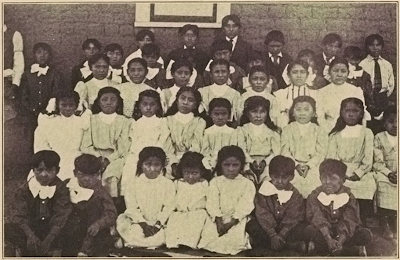 |
| Prof. Maritza Reyes |
FAMU apparently did not like what Reyes had to say. In a plain violation of academic freedom, the school proferred the email discussion as the reason to terminate a tenured professor.
I have written many times, since 2011, about the failure of universities to recognize academic freedom in spaces "penumbral" to published research and classroom teaching, namely faculty governance. In the same vein, Professor Keith Whittington wrote recently about the importance of protecting "extramural" academic speech.
Reyes is an accomplished and highly respected law teacher—thus, just the sort who attract condemnation in the academic culture—who is treasured by generations of students and has especially made a difference for persons of color in law schools and legal practice. She is FAMU's first and only tenured Latina law professor. In 2022, she founded the Graciela Olivárez Latinas in the Legal Academy ("GO LILA") Workshop, which she discussed in 2023 for AALS Women in Legal Education.
Students and alumni are leading the resistance to Reyes's termination. Please review and consider signing on to the following letter. You can share the letter further with this link: https://forms.gle/VUnYPKiMwyWtMDJx8, or via The Savory Tort.
(This post revised and updated on Mar. 19, at 5:40 p.m.)
Dear President Larry Robinson and Provost Allyson Watson:
We, the undersigned members of the Florida Agriculture and Mechanical University (FAMU) Hispanic American Law Student Association (HALSA), joined by fellow students, alumni, allies, and friends, respectfully request that you rescind your intent to dismiss College of Law Professor Maritza Reyes (Professor Reyes) from her tenured position. For the past fifteen (15) years, Professor Reyes has been a caring professor and has made excellent contributions to the school, especially its students. Professor Reyes has also served as HALSA's faculty advisor for many years.
Professor Reyes is an accomplished teacher, scholar, and member of the legal academy and community. She began her employment in the FAMU College of Law as a tenure-track assistant professor of law in 2009, earned tenure in 2015, and is now a tenured, full professor of law (the highest faculty rank). FAMU has evaluated Professor Reyes's record during many formal evaluative processes, including applications for promotion to associate professor, for tenure, and promotion to full professor; annual reviews; and, most recently, post-tenure review. Professor Reyes has demonstrated consistent excellence and productivity in scholarship, teaching, and service. She has too many accomplishments to list here, including being recognized in the U.S. Congressional Record for her service to our community. You are well-aware of her many accomplishments including through all of the above listed evaluations.
We were heartbroken and outraged to learn that Provost Allyson Watson (Provost Watson), by letter dated February 16, 2024 (the "Notice"), informed Professor Reyes of the University's intent to dismiss her from her tenured position. According to FAMU Regulation 10.120(2)(c), the "Contents of Notice" must include the following information: "A list of documents or written explanation on which the charges are based; and a statement that documents shall be available to the employee upon request." The documents Professor Reyes received consisted of emails that were sent to the entire College of Law Community during the period of February 1, 2024 to February 5, 2024. The entire College of Law Community (faculty, staff, and students) received the emails after then College of Law Dean Deidré Keller (Dean Keller) opened this email forum on February 1, 2024 to provide notice of her resignation effective immediately. Several professors, including Professor Reyes, and three students participated in these communications and sent emails to the entire College of Law Community. The use of email forums/listservs to the entire College of Law Community was not prohibited. Professor Reyes's emails were informative, professional, and timely. They helped bring transparency and accountability regarding Dean Keller's resignation, a matter of institutional and public importance. The Tallahassee Democrat initially reported about Dean Keller's resignation on February 2, 2024. Subsequently, Dean Keller provided her letter of resignation to this newspaper, which published it in a second article on February 6, 2024. These materials were readily available online via the newspaper's website.
In response to Professor Reyes's contributions via emails about Dean Keller's resignation, Provost Watson issued a Notice of intent to dismiss Professor Reyes from her tenured position. It seems to us that Provost Watson targeted Professor Reyes for the content of her speech and sought to silence her voice and future contributions in the FAMU College of Law. In a matter of days, Provost Watson charged Professor Reyes for dismissal without allowing her an opportunity to respond to a formal complaint, go through an investigation, receive meaningful due process, and get a report. To us as law students, the way Provost Watson has handled this situation screams of injustice and lack of due process.
Many students and alumni describe Professor Reyes as an exceptional educator who made a lasting and meaningful impact on their law school experiences and legal careers. She always set high standards and would provide the guidance and skills necessary to reach them. She also inspired students to achieve their individual levels of excellence. Some of us made it through difficult situations during law school thanks to her unwavering support. Professor Reyes has also been an advocate for student organizations. Therefore, if your intent to dismiss Professor Reyes comes to pass, you will harm past, current, and future FAMU College of Law students by taking away an excellent professor who has been our teacher, mentor, advocate, ally, supporter, and friend. You will also harm the law school, including with negative publicity. You have already disrupted the high-caliber teaching law students expected to receive when they registered for Professor Reyes's courses. You abruptly replaced her with less-credentialed and less-experienced instructors who had never taught in a law school before. Many of us will be further traumatized by Professor Reyes's dismissal. We cannot remain silent in the face of such injustice.
There are currently twenty (20) tenured professors (associate and full) in the College of Law. Professor Reyes was the first and thus far only Hispanic professor hired in the tenure track and subsequently tenured in the FAMU College of Law. She has served as HALSA's dedicated, supportive, and highly competent faculty advisor. According to the FAMU College of Law American Bar Association 2023 Standard 509 Required Disclosures, Hispanic students make up 25% of the total law student body. It is important that Hispanic students be appropriately represented in the law school. While this letter is spearheaded by HALSA's Board, we are being supported in our efforts by students and alumni of diverse backgrounds who appreciate and respect Professor Reyes's teaching, mentoring, and support.
There is a strong sense among the student body that an injustice is happening in view of all of us. On February 27, 2024, students met with FAMU College of Law Interim Dean Cecil Howard and protested the intended dismissal of Professor Reyes. Interim Dean Howard responded that the decision was made by Tallahassee Administrators to whom students should voice their protests. This is what we are doing via this open letter. We have distributed this letter widely for signatures by students, alumni, allies, friends, and supporters of justice everywhere. Please hear us when we tell you that the intended dismissal of Professor Reyes is a grave injustice. You have the power to stop this intended wrong. Please do so!
We respectfully demand that you keep Professor Maritza Reyes in the tenured faculty position she earned. She has done nothing warranting dismissal. We also demand that you grant Professor Reyes's request for a public meeting regarding her intended dismissal.
















